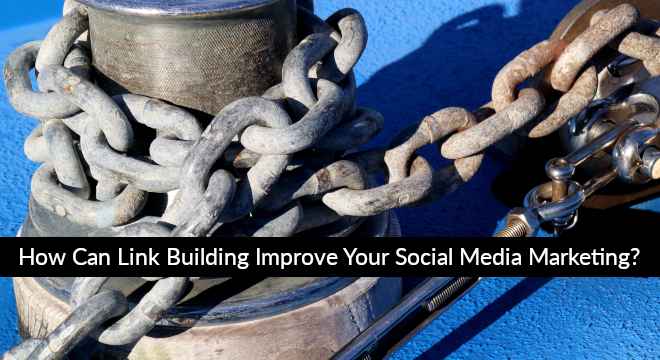
In today’s digital age, social media has become essential for businesses to market their products and services. With over 4.4 billion active social media users worldwide, it’s no wonder that social media has become a crucial part of any successful marketing strategy.
However, with so many social media platforms available, choosing the right platform, developing a content strategy, and engaging with your audience can be overwhelming.
This guide will provide you with a comprehensive overview of social media marketing and how to use it to drive success for your business.
What Is Social Media Marketing?
Social media marketing uses social media platforms to promote a product or service. The aim is to increase brand awareness, drive website traffic, and generate leads and sales. It involves creating and sharing content on social media platforms like Facebook, Twitter, Instagram, LinkedIn, and Pinterest engaging with followers, running social media ads, and working with influencers to promote the business.
With billions of people using social media platforms daily, marketing presents a huge opportunity for businesses to reach a large and engaged audience and build customer relationships.
Eight Key Strategies Businesses Can Use To Succeed In Social Media Marketing
1. Set Goals
The first step in any social media marketing strategy is to set clear goals. What are you trying to achieve with your social media presence? Are you looking to drive traffic to your website, generate leads, build brand awareness, or increase sales? Once you clearly understand your goals, you can start to develop a plan to achieve them.
2. Identify Your Audience
The success of your social media marketing efforts will largely depend on your ability to understand and connect with your target audience. Who are they? What are their interests and pain points? What social media platforms do they use? Once you have a clear picture of your target audience, you can tailor your content and messaging to resonate with them.
3. Choose Your Platforms
Not all social media platforms are created equal. Each social media platform has its own unique features, demographics, and user behavior. It’s important to choose the platforms that are best suited to your business and your audience. To choose the right platform for your business, you need to consider your target audience, your marketing goals, and the type of content you want to create. Here are different types of social media platform
- Facebook: With over 2.8 billion active users, Facebook is the largest social media platform in the world. It is an excellent platform for businesses that want to reach a broad audience and promote their products and services through various ad formats, including image ads, video ads, and carousel ads.
- Instagram: With over 1 billion active users, Instagram is a visual platform that is ideal for businesses that want to showcase their products through high-quality photos and videos. It is especially popular among younger audiences and is great for building brand awareness and engagement.
- LinkedIn: With over 740 million users, LinkedIn is a professional networking platform that is ideal for B2B businesses. It is a great platform for building professional relationships, sharing industry news, and generating leads.
- Twitter: With over 330 million active users, Twitter is a fast-paced platform that is ideal for businesses that want to share real-time updates and news. It is great for engaging with your audience and building brand awareness.
4. Developing A Social Media Content Strategy
Once you have chosen the right platform for your business, it’s time to develop a social media content strategy. A social media content strategy is a plan that outlines what type of content you will post, how often you will post, and how you will engage with your audience.
To develop a social media content strategy, you need to identify your target audience and create content that is relevant to them. You also need to create a content calendar that outlines when you will post your content and what type of content you will post.
Your content should be engaging, informative, and visually appealing. You can use a mix of content formats, including images, videos, and blog posts, to keep your audience interested and engaged.
[Read related article: Content Strategy: Five Top Tips]
5. Engaging With Your Audience
Engaging with your audience is a critical part of social media marketing. When you engage with your audience, you build a relationship with them and create brand loyalty. To engage with your audience, you need to respond to comments and messages promptly. You can also run social media contests and giveaways to incentivize engagement.
It’s also essential to monitor your social media performance regularly. You can use social media analytics tools to track your performance and see which content is performing well and which is not.
6. Leverage Influencers
Influencer marketing has become a popular strategy for businesses looking to reach a larger and more engaged audience. By partnering with influencers with large social media followers, companies can tap into their influence and credibility to promote their products or services. When choosing influencers to work with, it’s important to choose those who are a good fit for your brand and your target audience.
[See related article: Why Use Influencers? Social Marketing Trend You Cannot Ignore]
7. Use Paid Advertising
Social media advertising can be a powerful tool for businesses looking to reach a larger audience and drive conversions. Most social media platforms offer a range of advertising options, including sponsored posts, display ads, and video ads.
By targeting your ads to specific audiences based on demographics, interests, and behaviors, you can ensure that your ads are seen by the people who are most likely to be interested in your products or services.
Paid social media Advertising involves paying to promote your content on social media platforms. Paid social media marketing can be an effective way to reach a broader audience and generate leads and sales.
8. Monitor and Measure Your Results
Finally, it’s important to monitor and measure the results of your social media marketing efforts. Social media monitoring means tracking metrics such as engagement, click-through, and conversion rates and using this data to refine and optimize your strategy over time.
By continually monitoring and measuring your results, you can ensure that your social media marketing efforts are effective and deliver a positive investment return.
Conclusion
In conclusion, social media marketing is vital to any modern business strategy. By setting clear goals, identifying your audience, choosing the right platforms, developing a content strategy, engaging with your audience, leveraging influencers, using paid advertising, and monitoring and measuring your results, you can create a successful social media marketing campaign that will help you reach a larger audience, build brand awareness, and drive conversions.
However, it is important to remember that social media is constantly evolving, and what works today may not work tomorrow. It’s important to stay up-to-date with the latest trends and best practices in social media marketing and to be willing to adapt and adjust your strategy as needed.
By taking the time to understand your audience, create high-quality content, engage with your followers, and leverage the power of social media advertising and influencers, you can build a strong and effective social media marketing campaign that will help you achieve your business goals and stay ahead of the competition.
[Recommended reading: How Can Link Building Improve Your Social Media Marketing?]
[Image credits – Main Photo by Andrea Piacquadio; other images are from their respective Social Media Revolver articles.]
With over 13 years of experience as a leader in digital marketing, Mansi Rana is Managing Director of EZ Rankings. Passionate about all things data; providing actionable business intelligence in digital, future tech; and venture bubbles categories for everyone, everywhere.


